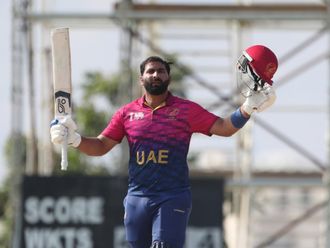The Course
It’s not just the riders and their rivalries that make for a great race, the course itself plays a pivotal role. Organisers ASO ratcheted up the challenges this year with crosswinds, cobbles, punchy short finishes and varied mountain parcours. From the very first day the racing was exciting and, despite fears Chris Froome would run away with overall victory, the yellow jersey battle went down to the wire. A resounding success.
Sky Tour kings
They may polarise opinion, but there can be no doubt that British team Sky hold the key to Tour success. Criticised for not yet winning either of the other Grand Tours, nor a monument one-day race, Sky don’t hide that their focus is on the Grand Boucle. Three victories in four years is a phenomenal achievement, but with domination comes damnation. Sky are unpopular in many quarters and some refuse to believe they are winning fairly, regardless of how many times team manager Dave Brailsford insists: “We race clean.”
French failure
The hosts may have a talented generation of young riders such as Thibaut Pinot, Romain Bardet, Warren Barguil, Nacer Bouhanni and Arnaud Demarre — all aged 25 or under — but they appear no closer to ending their country’s 30-year wait for a Tour victory. The first three may all be good climbers and potential overall contenders, but with Nairo Quintana only 25 and a superior climber and stage racer to all three, France may be scrapping over the podium positions rather than fighting for yellow glory in the coming years.
Doping dominates
Experts and insiders may agree that cycling is cleaner and fairer than perhaps ever before and certainly than the last 30 to 50 years, but the damage done by the likes of Lance Armstrong and Richard Virenque cannot easily be forgotten. Armstrong’s dominance and performances — boosted by EPO and blood transfusions — have left a bitter taste and lasting cynicism. Now, whenever a rider produces a remarkable performance, cries of doping and cheating drown out the plaudits. Chris Froome has never tested positive for doping nor ever produced a suspicious test result, but every brilliant victory elicits scorn and suspicion. He says his shoulders are broad enough to support the responsibility, but the vultures loom at every turn and some seem hell-bent on bringing him down, guilty or not.
African emergence
East Africans already dominate another endurance sport and the time may well come one day when the same goes for cycling. Kenyans and Ethiopians reign supreme over middle and long distances in athletics and even Chris Froome believes they have what it takes to take over the Tour de France. MTN Qhubeka made their debut as the first African team at the Tour and even won a stage. That may have been through a white Briton in Stephen Cummings, but Eritreans Daniel Teklehaimanot and Merhawi Kudus became the first black Africans to ride the Grand Boucle. It was a learning experience for both but, perhaps more importantly, in years to come people will look back on their participation as that of trailblazers. They finished 49th and 84th respectively overall in a very credible performance from both. It may take time, but the door has been opened for East Africans.











